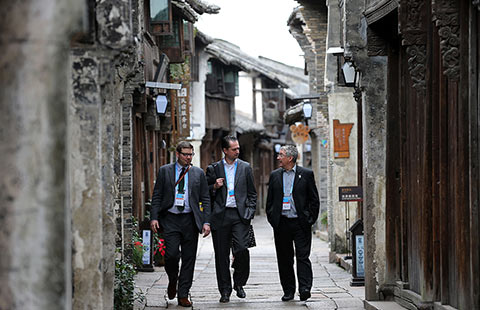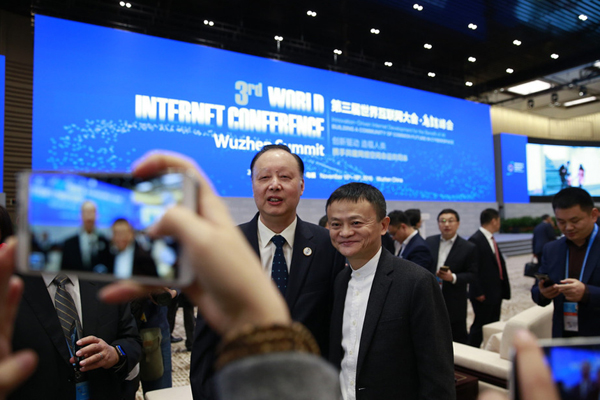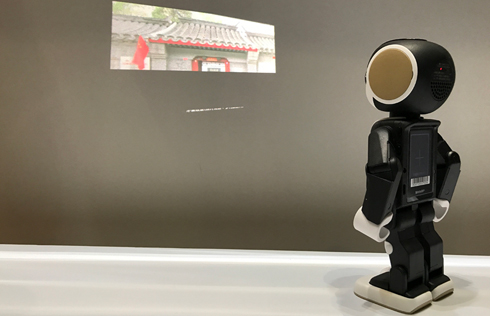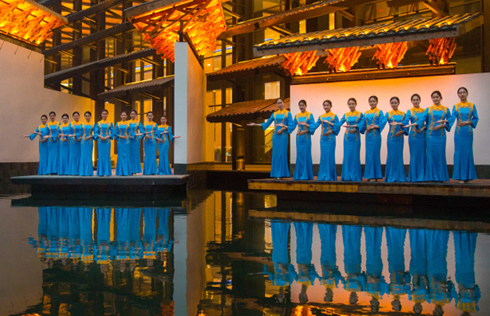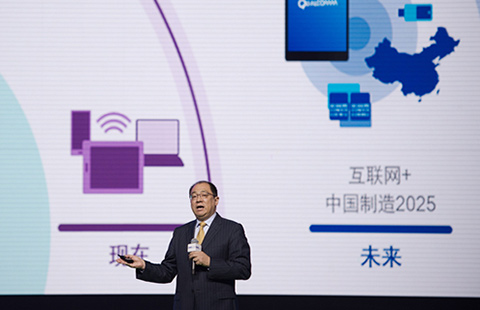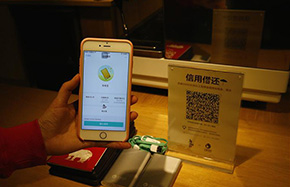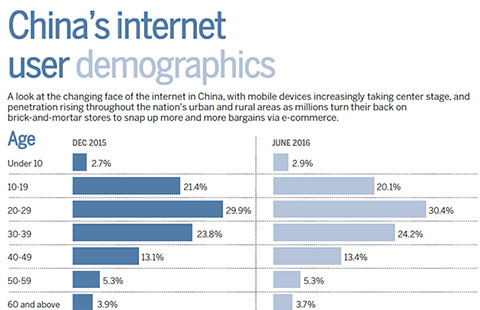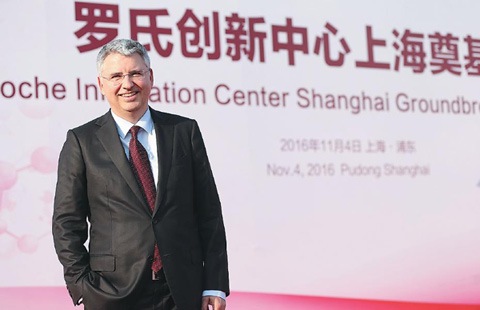Caught in innovators' web, a rude awakening
As a business journalist, I think of money all the time.
I've been trained to develop a "nose for news"-to sniff out, like a hound, anything that can influence investors and markets.
So, more often than not, I ask questions that some recipients may find rude. Like: Hello, how much did your company make last year? Do you have a feasible business model? Where do you plan to get the funding for the next round of expansion?
I've written many stories on how innovation can drive economic growth, how the internet and big data are the new infrastructure that will boost GDP growth, how the internet can do this and how the web can accomplish that.
So many stories that sometimes I forget there's another way to look at the internet industry. Which is why events like the ongoing Wuzhen internet conference are important. They can sensitize you to things that you would otherwise fail to notice.
Before I came to Wuzhen, I expected to break big money-related stories. After all, the high-profile internet conference attracts many business tycoons and billionaires such as Alibaba Group's Jack Ma and Tencent Holdings' Pony Ma.
But, as it turned out, what truly impressed me was stories beyond money and investments.
At the Light of the Internet Exposition that opened on Tuesday, a startup that showcased its product in a corner caught my attention.
Its product was an artificial intelligence or AI-enabled glove that can translate sign language into voice in a jiffy.
"It is actually quite a mature technology. But by applying it to translate sign language, we hope to help those who can't speak find jobs more easily," said one of the product developers.
The irrepressible, curious business journalist in me asked promptly: how much will the product cost?
"Less than 1,000 yuan ($145)," said the man.
That shocked me to the core.
For, just last week, a record 120 billion yuan in Singles Day (Nov 11) sales on Alibaba's platforms such as Tmall and Taobao showed how consumption could be key to economic growth.
And here I am, in Wuzhen, learning that technology, too, could transform lives, strengthen human resources and energize the economy. With less than 1,000 yuan, a price not beyond urban people, a person's life can change for the better.
As I talked to more people in Wuzhen, more such stories emerged.
For instance, one internet company in Zhejiang province uses information technology to help more patients contact doctors directly online, obviating long waits at hospitals.
I checked a local doctor's profile on the platform. Patients can explain their symptoms and, with 10 yuan, get text-based diagnosis from the doctor.
Another inspiring story: without charging any money upfront, Ant Financial Services Group offers certain services that make life convenient. Like: you can rent umbrellas and portable batteries in Wuzhen. All you need to have is an excellent online credit record.
Wuzhen has made me realize that great business stories need not always be about money, finance, tycoons and billionaires. Innovators, big or small, known or unknown, also change the world.
Now I see the Wuzhen conference theme-"Innovation-driven Internet Development for the Benefit of All"-isn't some fancy feel-good line but pregnant with meaning. Entrepreneurs who abound here are living proof of that theme.
I feel privileged and blessed to be able to record and tell their stories.




